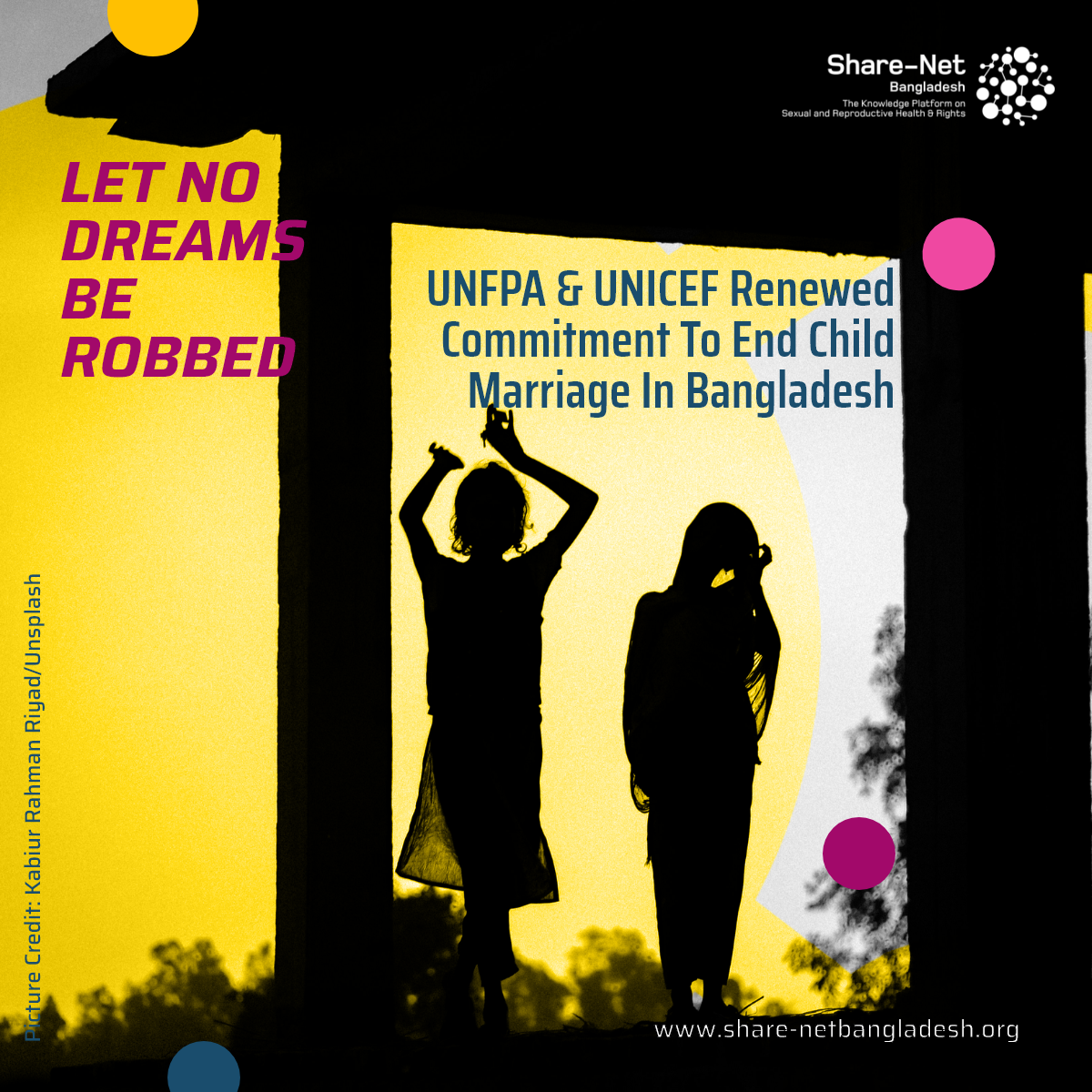Let No Dreams Be Robbed: UNFPA and UNICEF Renewed Commitment to End Child Marriage in Bangladesh
Child marriage continues to rob young girls in Bangladesh of their future, with over 51% of girls marrying before the age of 18. Recognising the critical need for intervention, two United Nations agencies UNFPA and UNICEF called for urgent action to end this harmful practice during their recent joint mission to Bangladesh from December 8 to 12. The visit was part of the Global Programme to End Child Marriage (GPECM), which works in 12 high-prevalence countries, including Bangladesh. Despite notable progress, the UN agencies emphasised that Bangladesh must accelerate its efforts 22 times faster to meet Sustainable Development Goal-5, which aims to eliminate child marriage by 2030.
During the joint mission, representatives underscored that child marriage jeopardises not only the rights of girls but also their education, health, and overall well-being. Girls married young face greater risks of domestic violence, early pregnancies, and economic insecurity, perpetuating cycles of poverty across generations. Highlighting the urgency of the issue, UNFPA Bangladesh Representative Masaki Watabe stated: “Ending child marriage is about creating opportunities for girls to lead safe, healthy, and empowered lives. Prioritising sexual and reproductive health rights, education, and community engagement is essential to transforming harmful norms.”
Rana Flowers, UNICEF Representative in Bangladesh, echoed this: “Child marriage is both a violation of children’s rights and a barrier to sustainable development. The voices of girls must be central to our collective action to create a future where every child can thrive.”
Since its launch in 2016, GPECM has worked closely with the Bangladeshi government to identify root causes of child marriage, empower communities, and strengthen child protection systems. In its previous phases, the program reached 5.5 million girls through grassroots initiatives and advocacy. Under the new phase (2024–2027), GPECM aims to engage adolescent girls in life skills education, promote gender equality through mass media campaigns, and involve boys and men in challenging harmful gender norms. The visit showcased programs that focus on empowering girls through education, employability training, and protection services, particularly in high-prevalence districts. These initiatives not only equip girls with critical life skills but also foster dialogue with parents, community leaders, and policymakers.
The delegation stressed the importance of fully implementing and funding the National Action Plan to End Child Marriage (NAPECM). The plan prioritises legal reforms, social protection, and targeted community interventions to create systemic change. During their field visits, the UNFPA-UNICEF team interacted with government officials, local leaders, and civil society organisations, highlighting successful initiatives while addressing existing challenges. Sheema Sen Gupta, Chair of the Global Programme, noted: “Bangladesh has shown that progress is possible through strong collaboration with all stakeholders. Prioritising NAPECM and strengthening the legal framework will create a ripple effect to end this harmful practice.”
The mission’s visit coincided with the 16 Days of Activism Against Gender-Based Violence, reaffirming child marriage as a severe form of gender-based violence and human rights violation. The UN agencies emphasised that collective action across government, civil society, and international partners is essential to achieving the goal of ending child marriage.
By focusing on girls’ empowerment, engaging men and boys, and transforming harmful social norms, Bangladesh can create a future where every girl has the opportunity to thrive. With renewed commitment and collaborative efforts, the elimination of child marriage is not just a goal but a necessity for achieving gender equality and sustainable development.

